AITAH for refusing to help my sister with her children, and telling her she chose her sh*tty life so now she has to deal with it?
There’s something oddly satisfying about watching someone who’s spent years condescendingly judging your life choices suddenly realize they might have made a mistake. But when that person is your sister—trapped in a financially abusive marriage, struggling with four kids, and reaching out for help—should satisfaction take a backseat to sympathy?
That’s the dilemma OP (24F) finds herself in after years of being talked down to by her older sister (26F), a self-proclaimed “trad wife.” Now, as her sister faces the harsh reality of an unbalanced marriage, OP is torn between standing her ground or extending a reluctant helping hand. The question is: Is she justified in her response, or has she taken her resentment too far?

‘AITAH for refusing to help my sister with her children, and telling her she chose her sh*tty life so now she has to deal with it?’

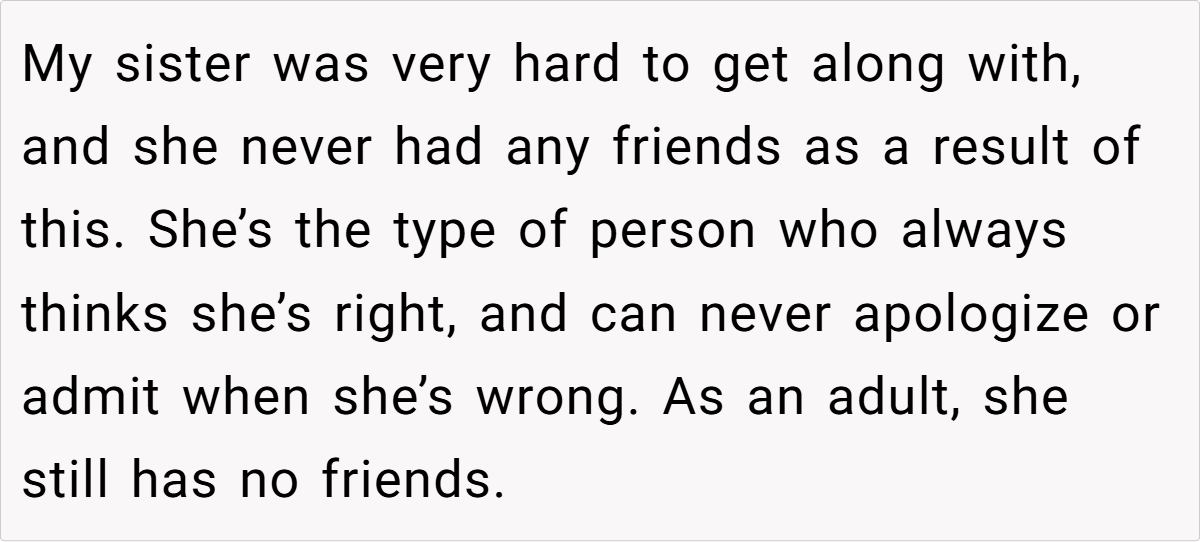
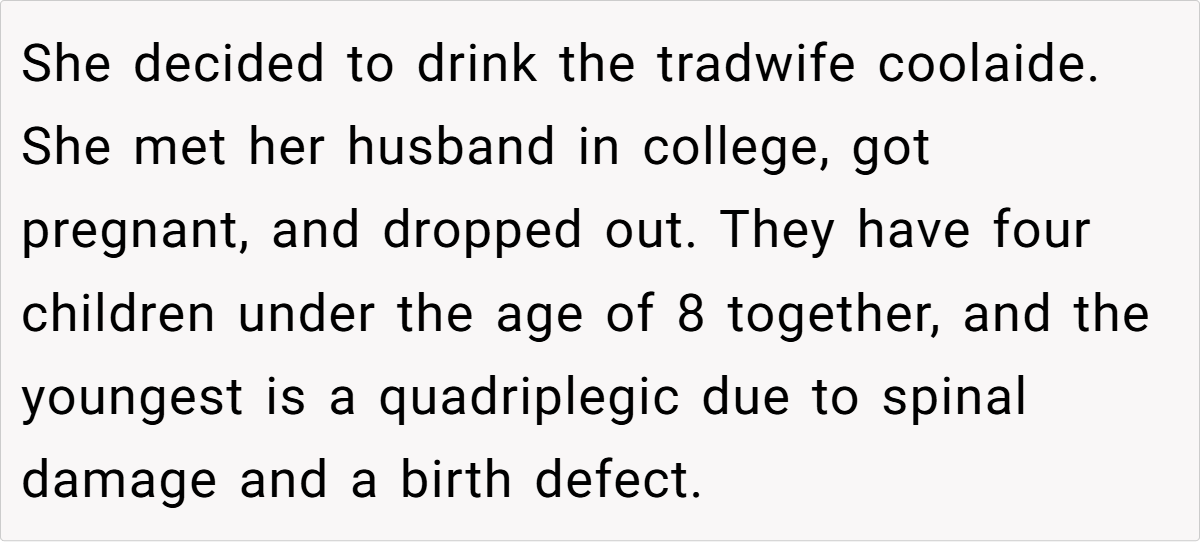

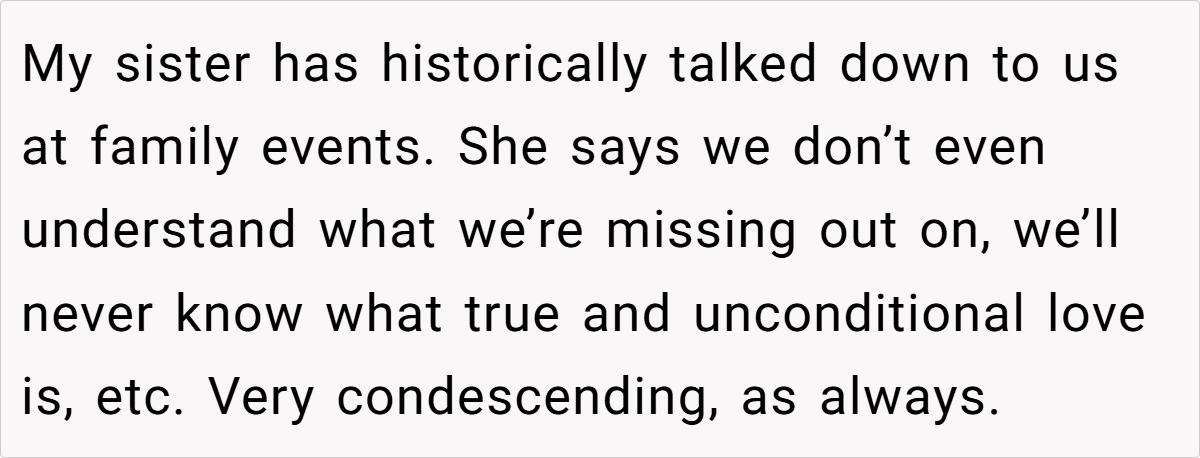


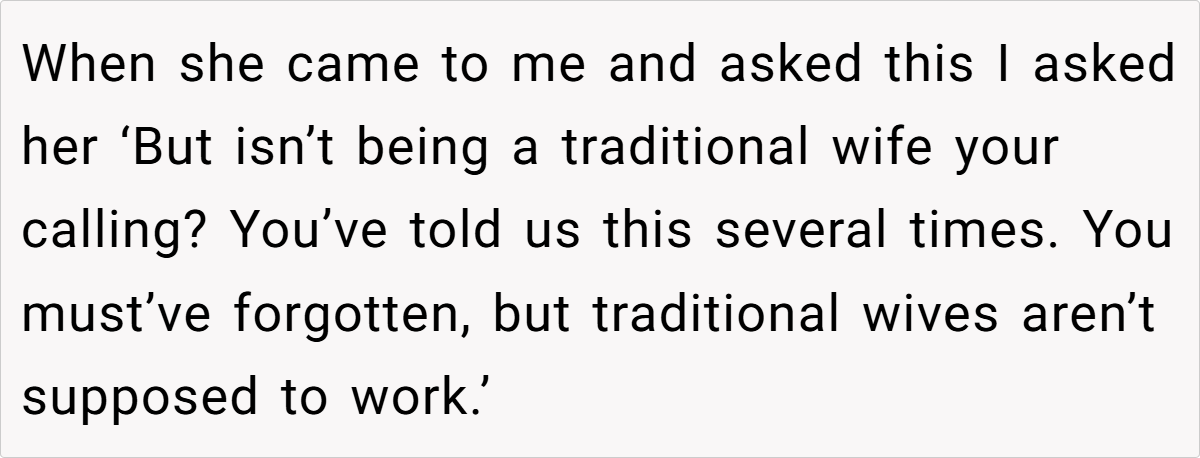
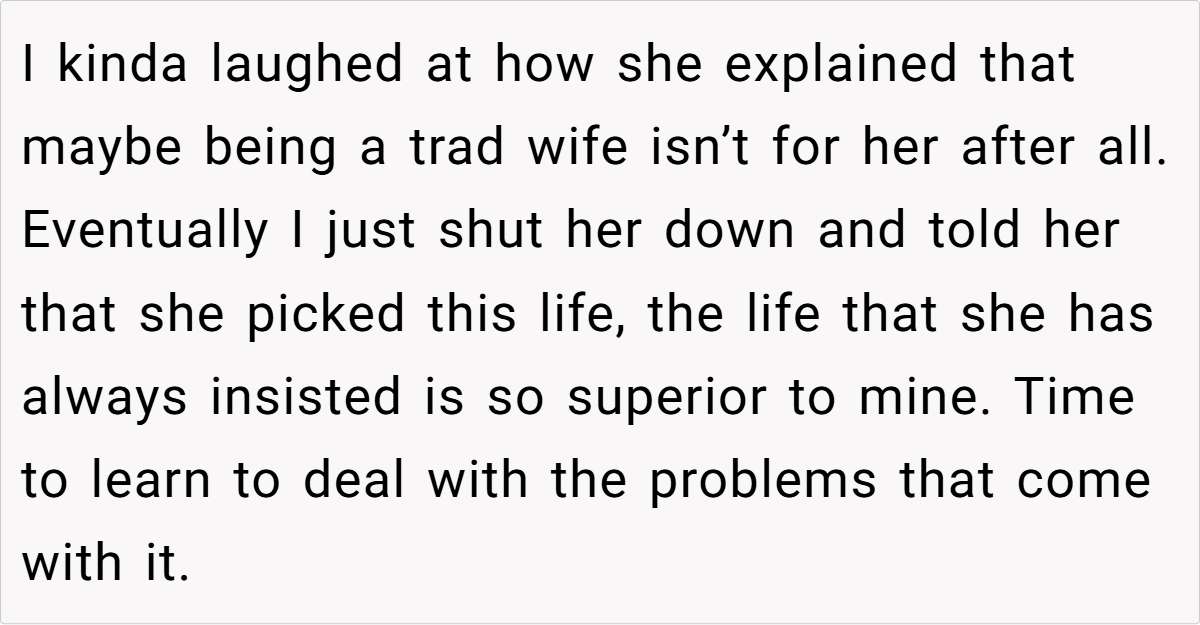
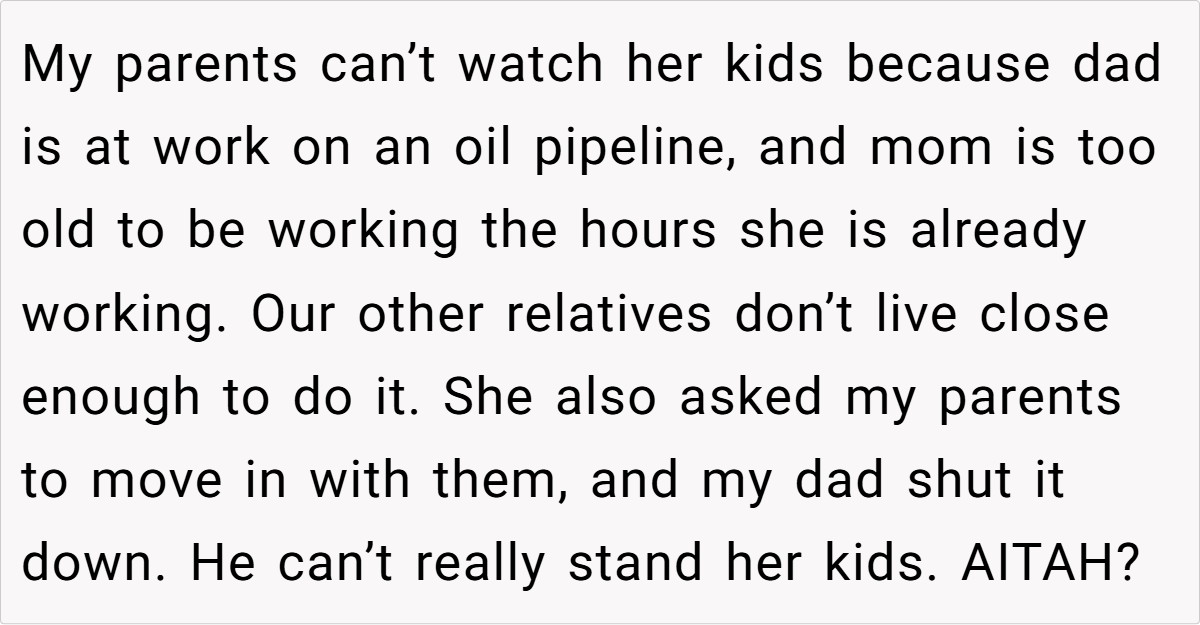
Expert Analysis:
The Real Issue: Financial Dependence in Traditional Marriages
The core conflict here isn’t just about sibling rivalry—it’s about the dangerous side of financial dependency. Traditional marriage structures, where one partner (usually the wife) is entirely reliant on the other for income, have existed for centuries. While some couples thrive in these arrangements, they also create an imbalance of power that can quickly turn into financial abuse.
According to the National Network to End Domestic Violence (NNEDV), financial abuse is present in 99% of abusive relationships. Victims are often cut off from financial resources, making it nearly impossible to leave. The control over money means they have no way to build independence, which keeps them trapped in unhealthy situations.
OP’s sister, who once proudly embraced a lifestyle that required complete dependence on her husband, is now facing the brutal reality of what happens when that dependency is exploited. Her situation isn’t just unfortunate—it’s textbook financial abuse.
Psychological Factors at Play
So why did OP react with smugness rather than concern? The answer likely lies in resentment.
1.Justification Bias – When someone has been belittled for their choices for years, they may take satisfaction in seeing the other person struggle as a form of “justice.” Studies in social psychology suggest that when people feel judged or condescended to, they are less likely to extend compassion when the tables turn.
2. Sibling Rivalry & Schadenfreude – Family dynamics often shape how we react to each other’s struggles. Research from the American Psychological Association highlights that sibling rivalry can persist into adulthood, especially when one sibling feels overshadowed or invalidated by the other. OP’s sister constantly framed her life choices as superior, which may have fueled OP’s reaction when things fell apart.
A Legal Perspective: Can OP’s Sister Escape?
From a legal standpoint, OP’s sister is in a tough spot. Because she never had access to financial accounts and doesn’t have independent income, she may struggle to get full custody or financial support in the event of a divorce. However, she does have options:
- Spousal Support & Child Custody Rights – Family courts typically take financial control and abuse into account when awarding spousal support. Even if her husband controls the assets, she is still entitled to a fair division of marital property. (Source: American Bar Association)
- Domestic Violence Protections – If there is any form of coercion or control beyond financial abuse, she may qualify for protective measures, including emergency financial assistance. (Source: National Domestic Violence Hotline)
This situation is a harsh reminder that financial independence is not just about having a career—it’s about having options.
Lessons Learned & Moving Forward
This situation raises some key takeaways for both OP and her sister:
- Financial Independence Matters—Even in Traditional Marriages – No matter how much trust exists in a relationship, maintaining some level of financial autonomy is essential for security.
- Resentment Shouldn’t Dictate Actions – OP has every right to set boundaries, but she should consider whether her reaction is more about past grievances than the present reality. Helping someone doesn’t mean condoning their past behavior—it means acknowledging they are in crisis now.
- Recognizing Financial Abuse Early – Many women in traditional marriages don’t realize they’re in financially abusive situations until they need to leave. Raising awareness about financial control and autonomy could prevent others from falling into the same trap.
- Children Are Not at Fault – Regardless of how OP feels about her sister, her nieces and nephews are innocent in all of this. If OP chooses not to help, that’s her right, but it’s worth remembering that the kids are also caught in this unfortunate situation.
Here’s what Redditors had to say:
Overall, Reddit had a mixed response. While many agreed that OP had no obligation to help, some pointed out that her response was unnecessarily cruel.
Others highlighted the reality that many “trad wives” don’t fully understand the risks of financial dependency until it’s too late. The conversation also expanded into broader discussions about financial control, gender roles, and societal expectations of marriage.



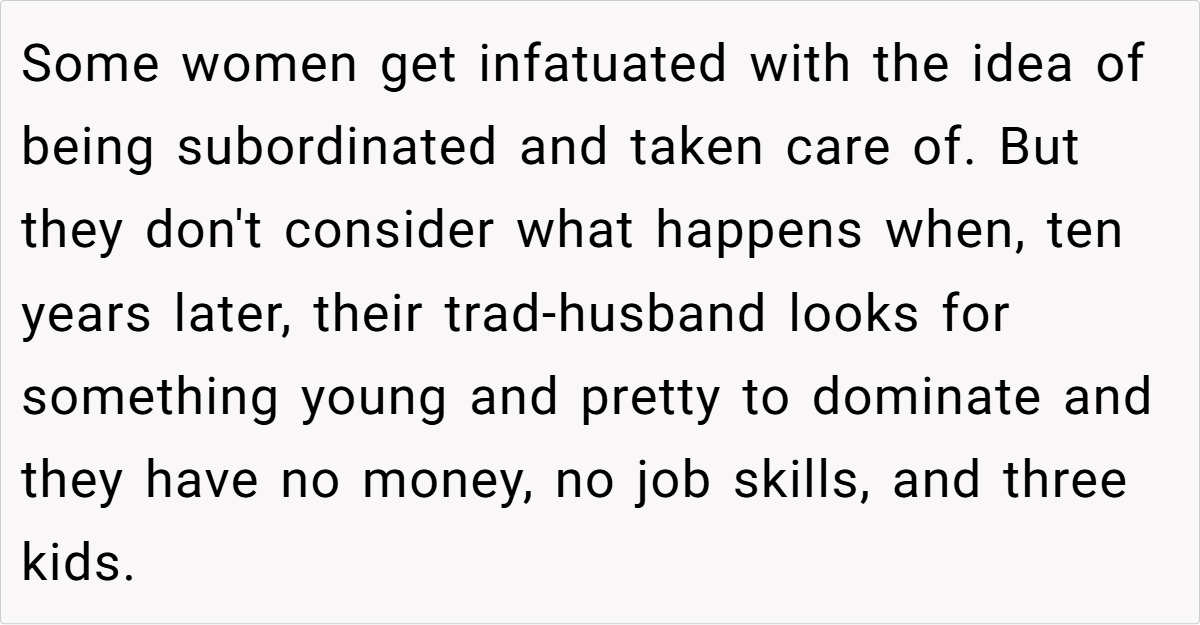

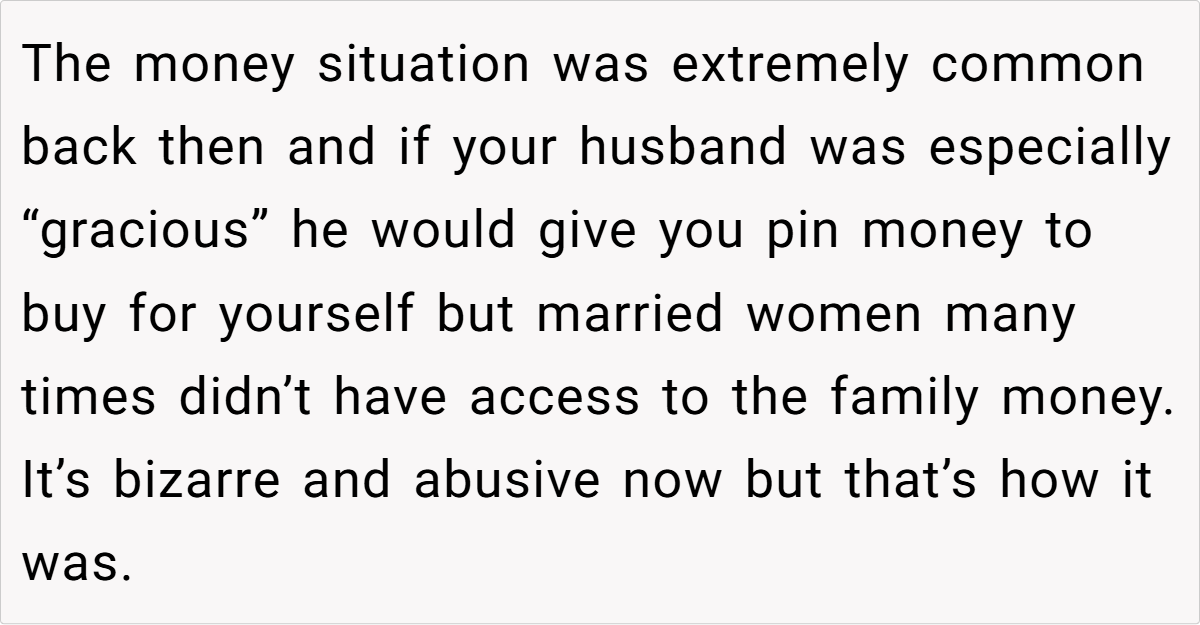
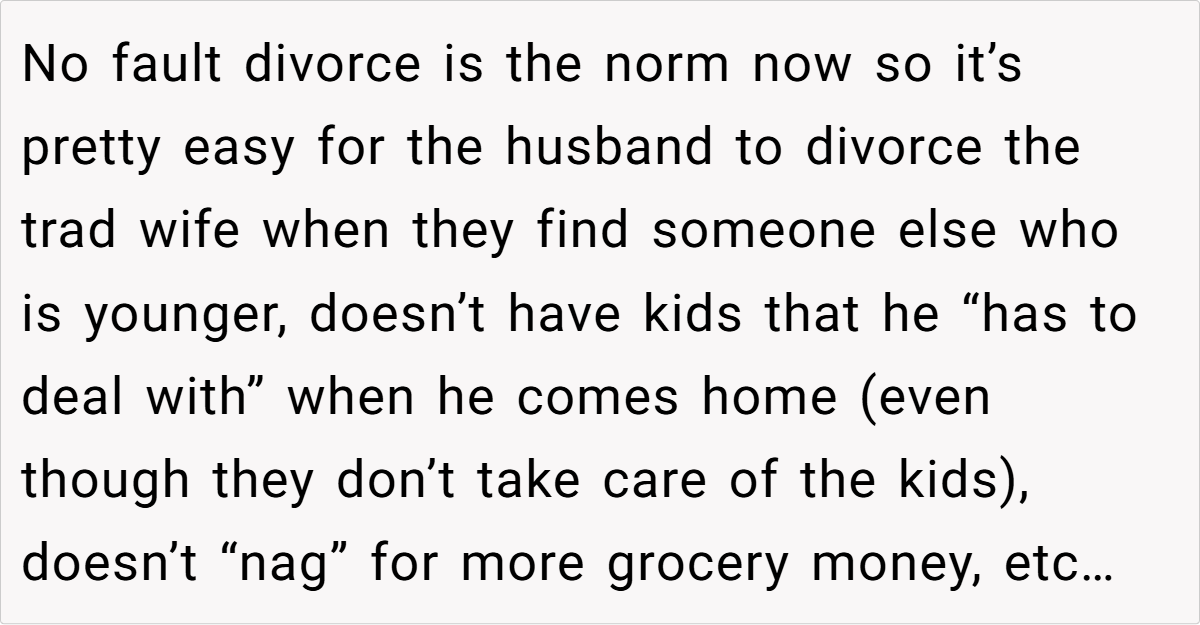
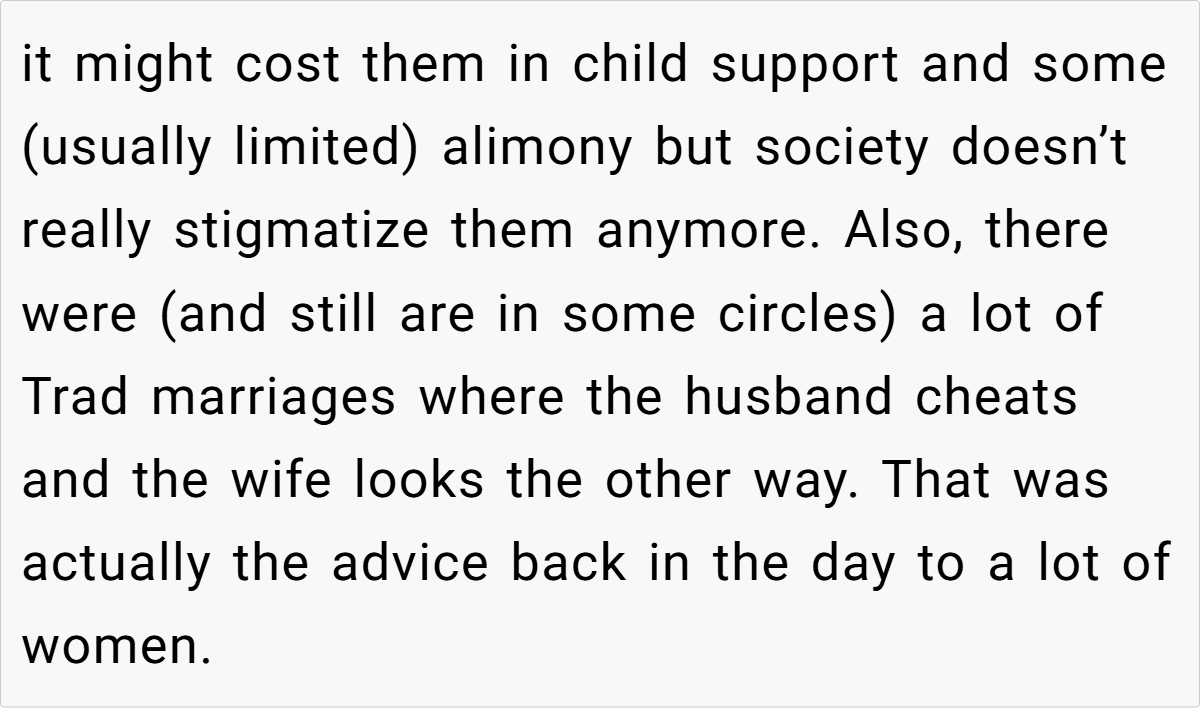


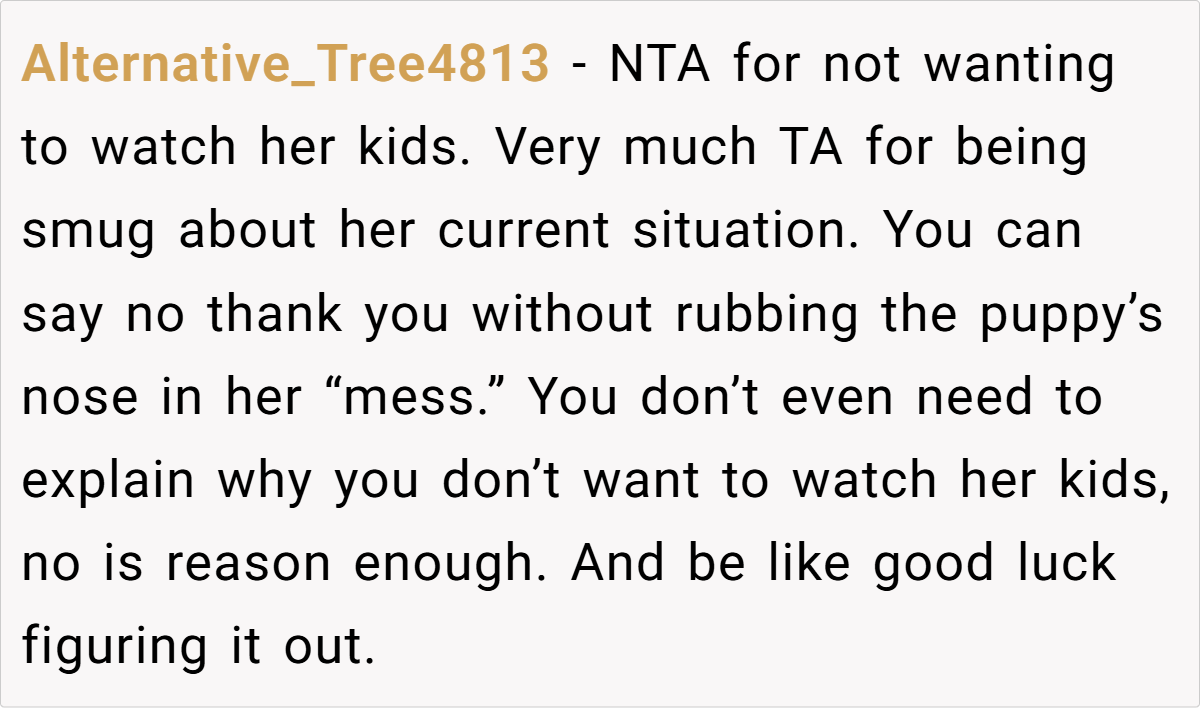
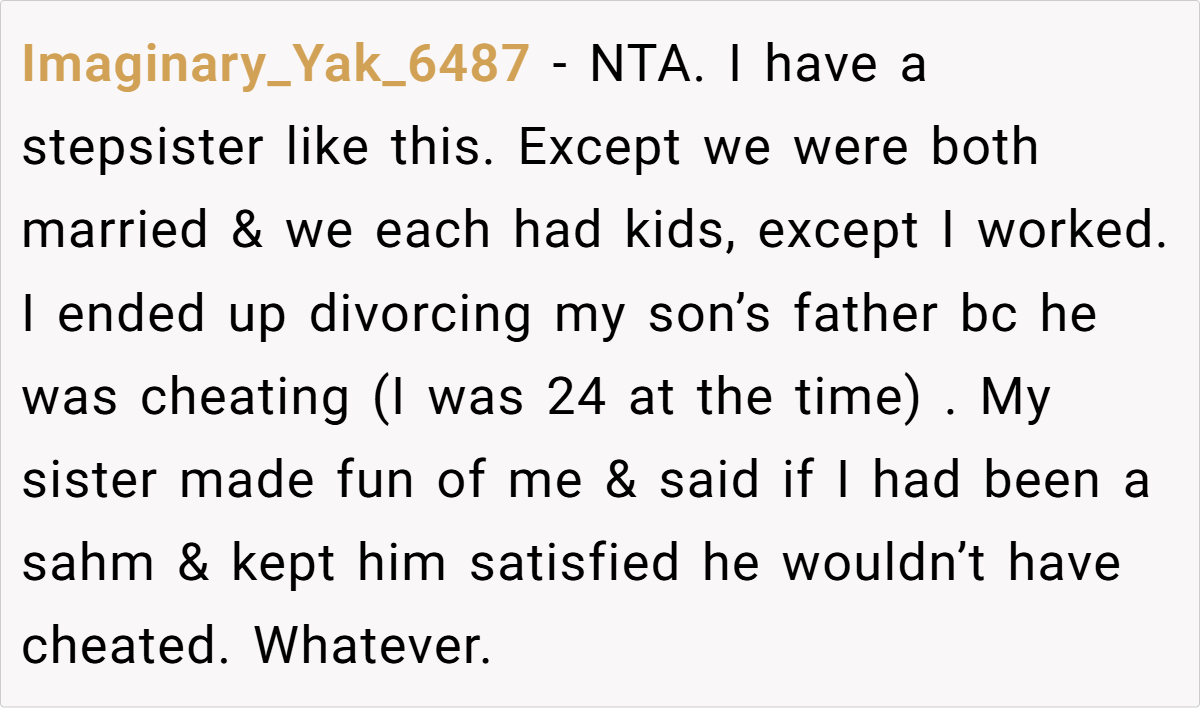



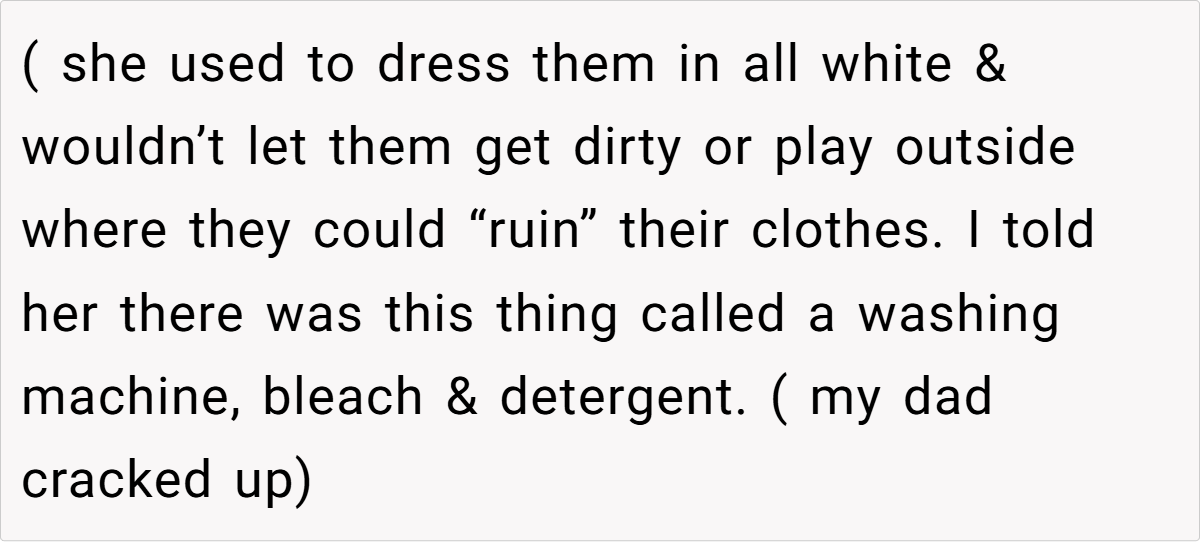



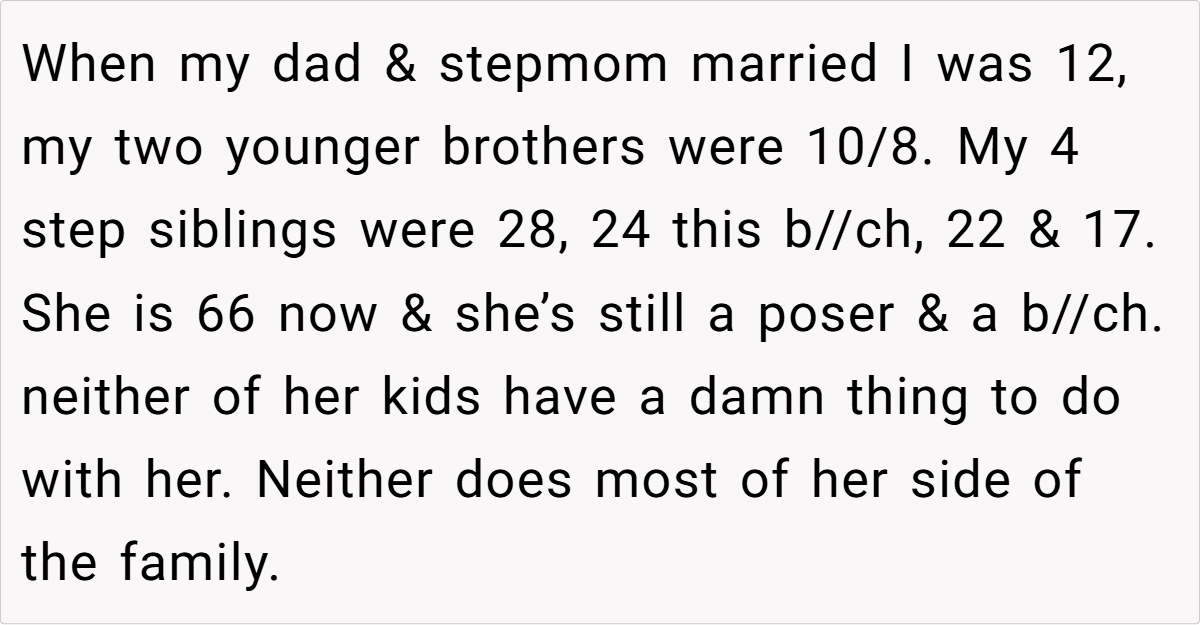

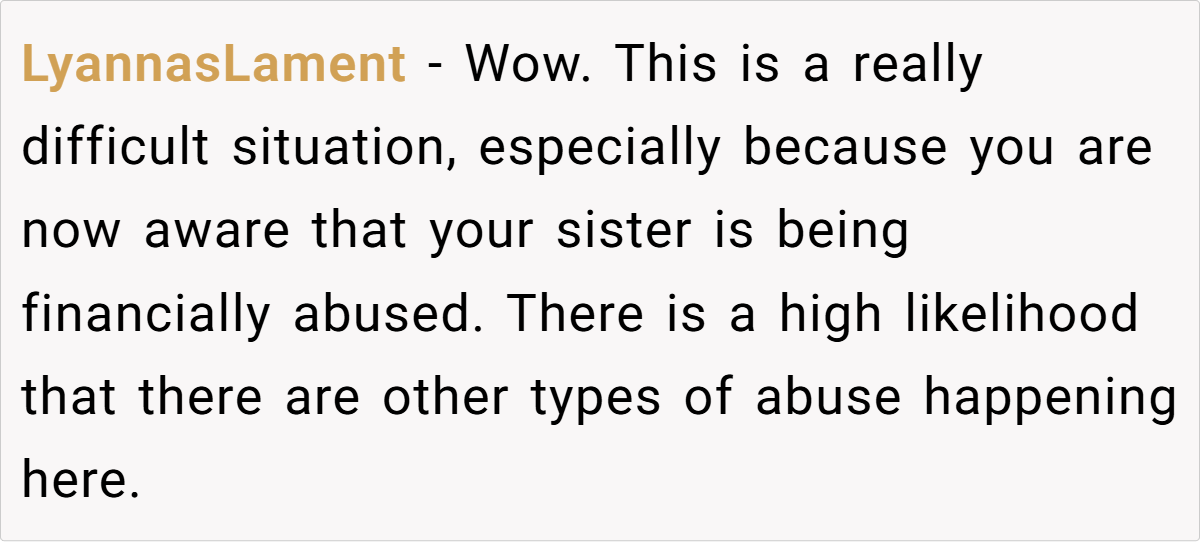

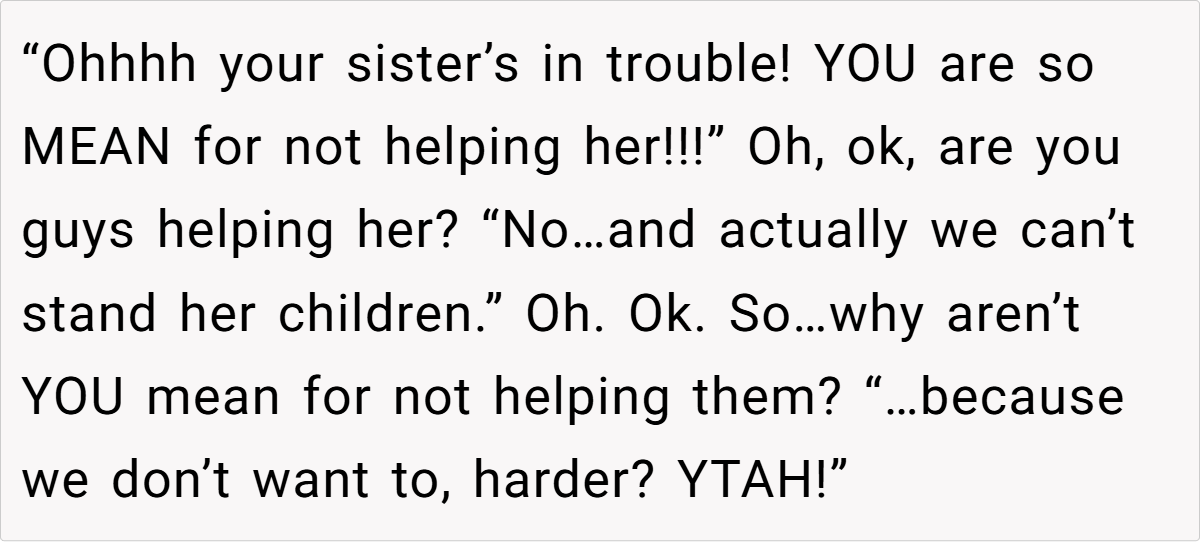
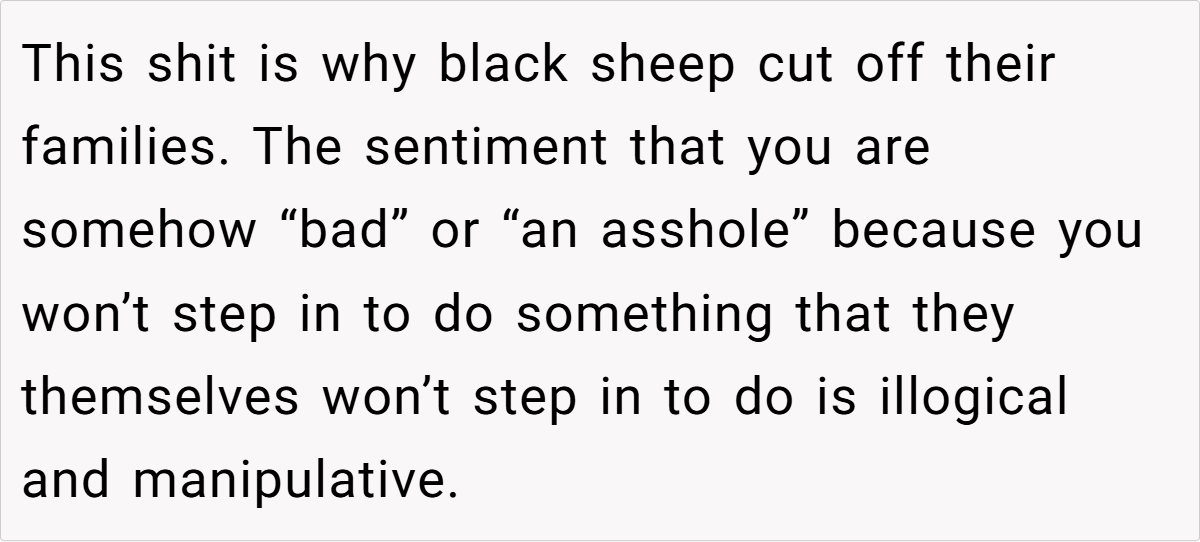
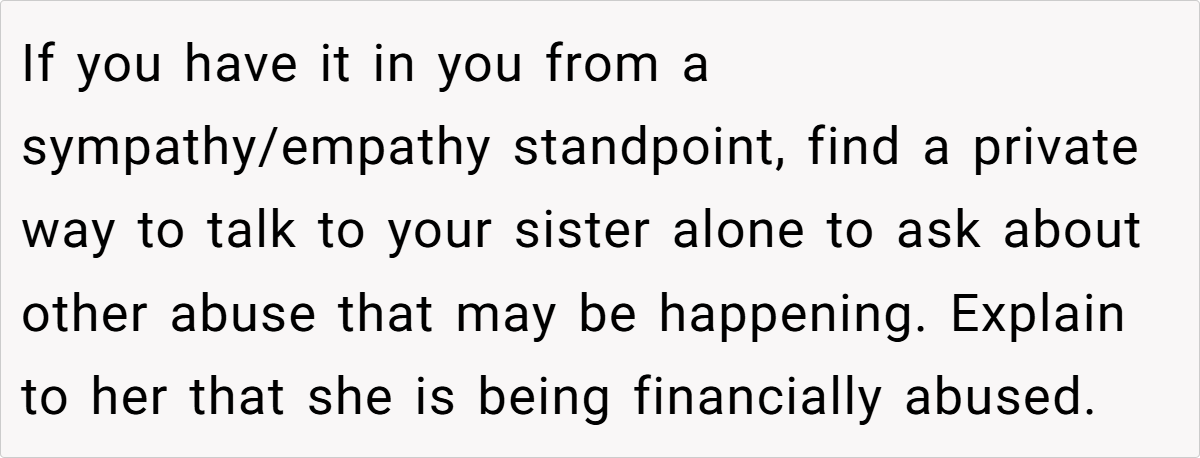
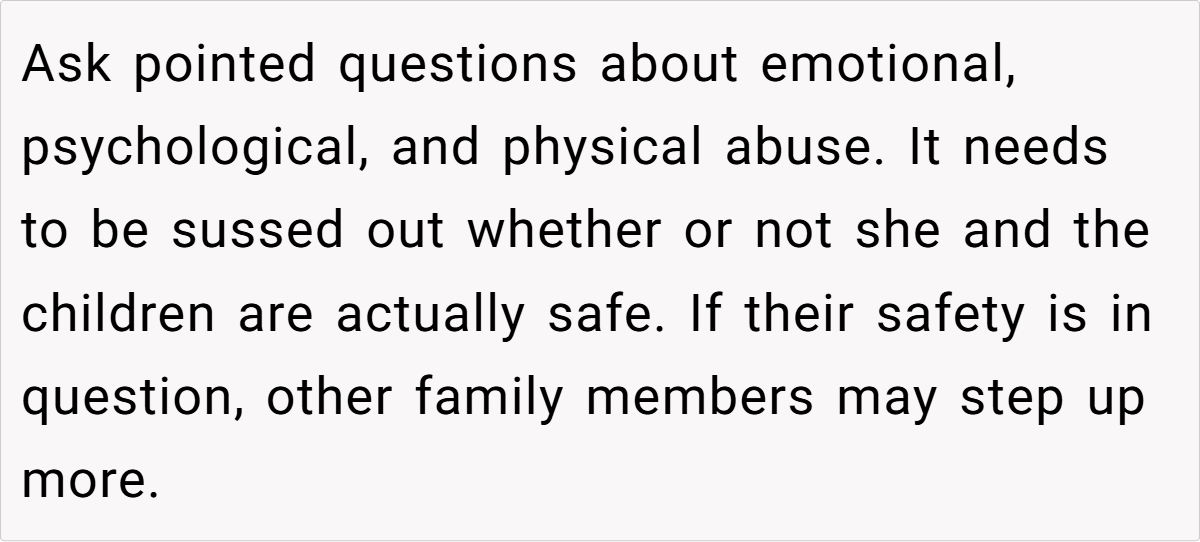
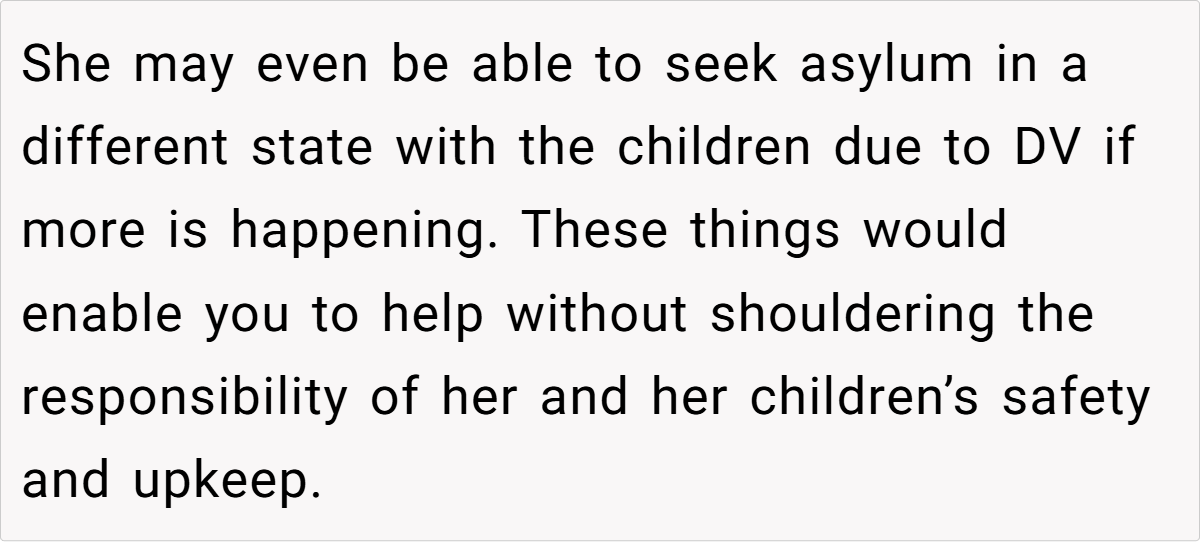
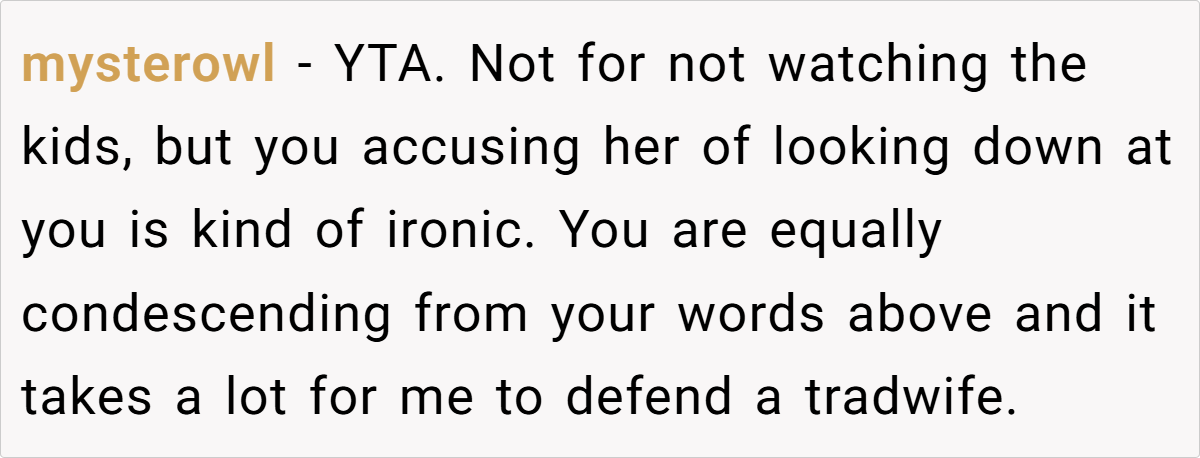


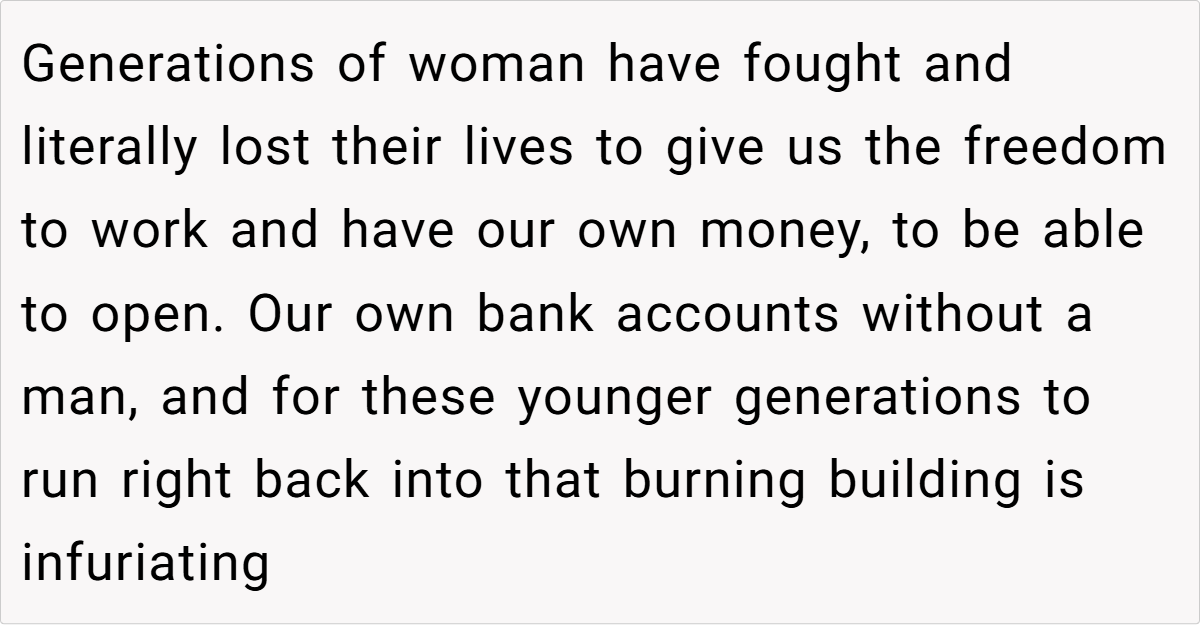


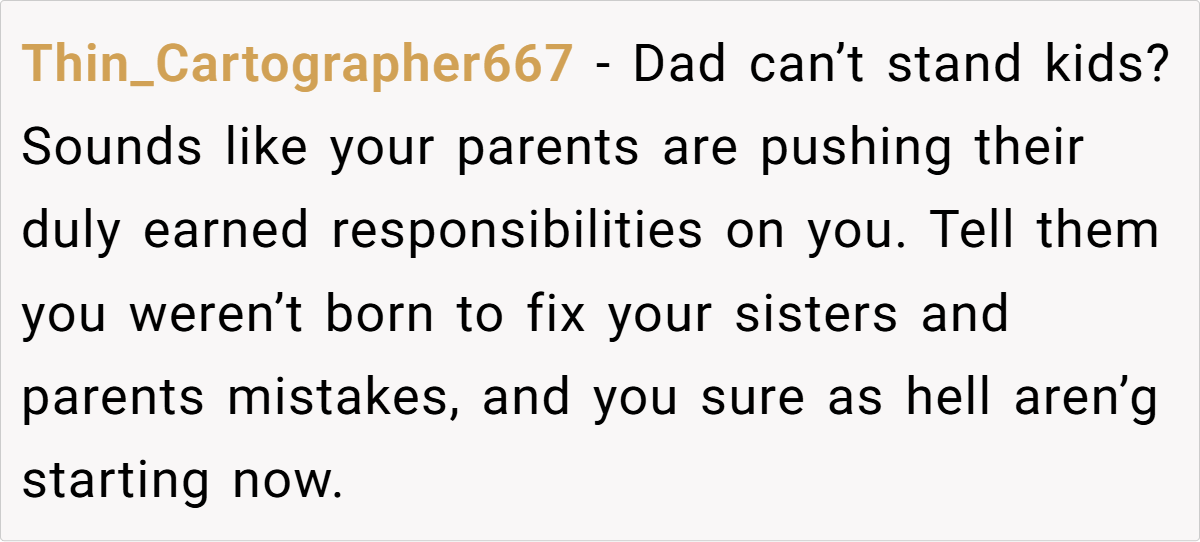
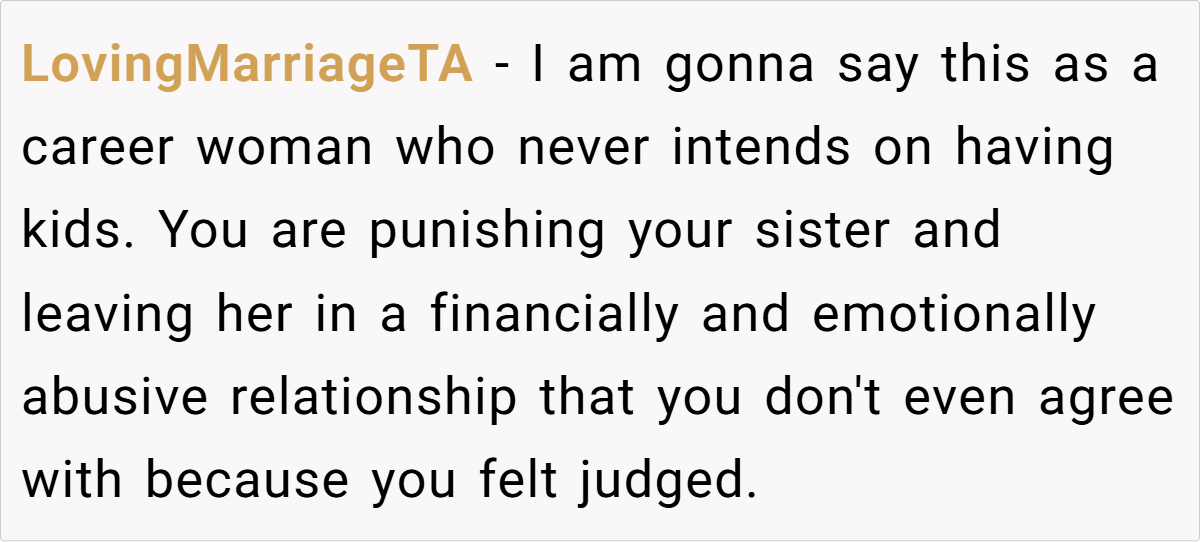
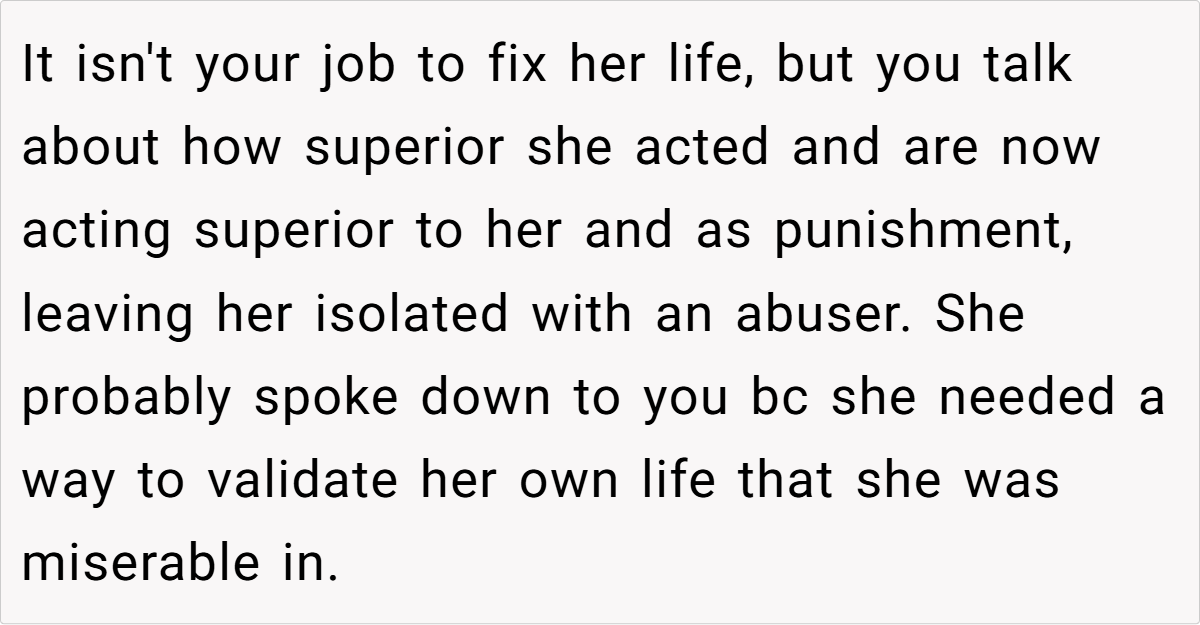

It’s easy to judge from the outside, but when someone is facing real hardship, do we set aside past grievances to help? OP’s situation is a reminder that life doesn’t always turn out the way people expect. What do you think—was OP justified in standing her ground, or did she take things too far? Let’s discuss.

